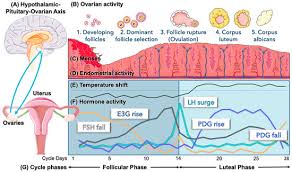Course info

This course delves into the practical application of hormonal contraceptives through a detailed case study approach. Participants will explore how hormonal contraceptives are chosen based on individual health needs, preferences, and medical conditions. The course covers the mechanisms of action, benefits, risks, and side effects of different hormonal contraceptive methods, with an emphasis on making informed decisions in contraceptive care.
Through the analysis of real-life case studies, learners will gain insight into the factors influencing the selection of hormonal contraceptives, such as patient age, underlying health conditions, lifestyle choices, and family planning goals. Additionally, the course will highlight the roles of various hormonal contraceptives, including oral contraceptives, injectables, implants, intrauterine devices (IUDs), and hormonal patches and rings.
By the end of the course, participants will have a comprehensive understanding of the different types of hormonal contraceptives, their uses beyond contraception (such as menstrual regulation and hormonal disorder management), and the potential risks and benefits. This knowledge will enable healthcare providers to offer personalized and effective contraceptive care to their patients.
Key Learning Objectives:
- Understand the mechanisms and functions of different hormonal contraceptive methods.
- Analyze case studies to explore factors influencing the choice of hormonal contraception.
- Compare and contrast the effectiveness, side effects, and advantages of various hormonal contraceptives.
- Recognize the broader roles of hormonal contraceptives in managing menstrual health and hormonal disorders.
This course is ideal for healthcare professionals, students, and individuals interested in gaining a deeper understanding of hormonal contraceptive methods and their role in modern reproductive healthcare.
- Teacher: Dean KIP
